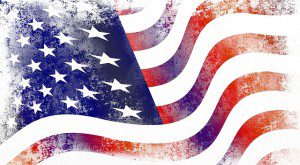Perhaps many of you have watched Saturday Night Live’s “Black Jeopardy” with Tom Hanks by now. The skit skillfully shows how much communities often divided by the culture wars may have in common. It also shows how far apart we are on those issues that divide us, such as “Black Lives Matter.” I showed the clip in my theology and ethics class yesterday in Portland, Oregon. I also made use of it in a seminar last week in Dallas, Texas for a conference dedicated to the multi-ethnic church movement.
The skit presents the African American game show host, the two African American contestants, and a white supporter of Trump named “Doug” (played by Tom Hanks) reflecting similar suspicions of the establishment and sharing parallel experiences and perspectives on life. All that ends when the last category is announced: “Lives That Matter.”
An NPR interview on the SNL skit discusses the significance of this skit as political commentary. One response in the interview stood out to me. According to the interviewee (Slate correspondent Jamelle Bouie), some give the community represented by Tom Hanks (a blue collar man wearing a “Make American Great Again” hat) a free pass on their views given that they feel marginalized by the system. However, according to this same commentator, the skit closes on this tense note of which lives matter to suggest that we should not back off of from challenging the Doug’s of this world since their views marginalize another group of people, namely, African Americans.
I can certainly appreciate what the Slate correspondent argued. I share this view of things. We should not tolerate views that marginalize others. Still, we all tend to do it. We all tend to marginalize those who take different views than we do on matters. We need to keep engaging one another to try and see and hear what each of us is really observing and saying.
Unfortunately, many of us don’t often engage people of different perspectives in our neighborhoods and churches across the land. After all, we are the country of “The Big Sort”. As The Economist article noted here indicates, around the time of 2008 people were moving to live amongst people of the same ideological stripes. I don’t think that phenomenon has lessened, but has likely intensified, including in our churches in some contexts. Often the only time we meet people of different perspectives is on Facebook and other forms of social media, or on game shows like SNL’s “Black Jeopardy.” The problem with this situation is that it jeopardizes true community made up of diverse voices from across the political and cultural spectrum.
As funny as the skit was, and although the skit could not do everything, I wish there had been or will be a sequel. If only the game show host and three contestants could have continued the conversation rather than assume they understood where one another was coming from. They were just starting to connect with one another as persons who had views rather than as views shrouding individuals. If only the question “Which lives matter?” was followed by the question “Why do these lives matter?” Then we might get somewhere, for the “why” question goes deeper and addresses values and affections. The “why” question helps us account for people’s experiences and personal stories. Asking the “why” question does not mean that we will necessarily agree at the end of the day, nor that we would not challenge one another. But it would help us complexify our arguments so that we move beyond game shows, Reality TV, and shock jock radio.














